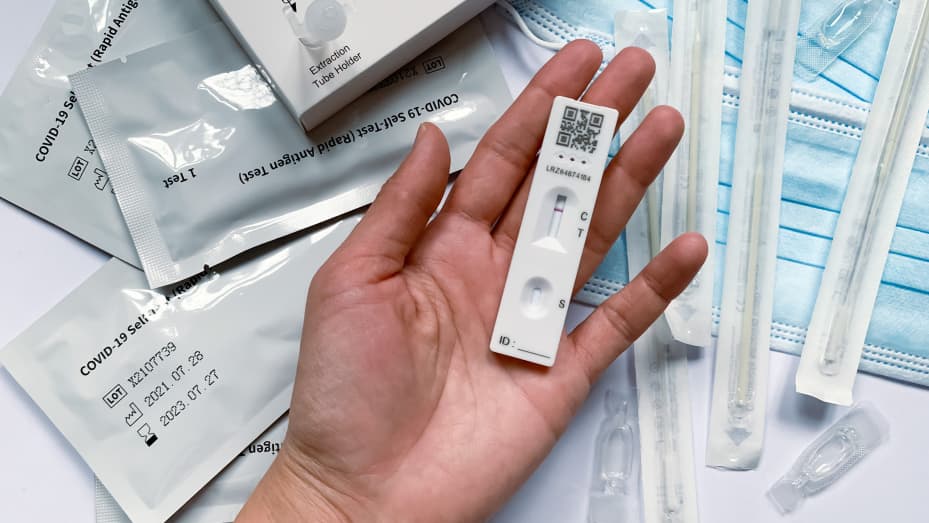Here’s how to get free at-home Covid tests after the federal government program ends
September 3, 2022
@allatsy via Twenty/20
By Annika Kim Constantino
The federal government stopped delivering free at-home Covid tests to Americans on Friday, suspending a program that has provided more than 600 million tests to U.S. households since it launched at the beginning of this year.
The White House blames lawmakers for the program’s suspension, noting on the program’s website that “Congress hasn’t provided additional funding to replenish the nation’s stockpile of tests.”
If and when Congress passes additional funding, the government will “expeditiously resume” the distribution of free at-home tests, a White House official told NBC News.Fortunately, in the meantime, most folks can still get the tests they need — free of charge.
Here’s how to get free at-home Covid tests
If you have private insurance, Medicare, or Medicaid, your insurer is required to cover eight at-home tests for each person enrolled in your health plan every month. That means a family of four can get 32 free tests every four weeks.
Some insurance plans will cover the tests at participating pharmacies like Walgreens and CVS. Other plans will reimburse you if you submit receipts through the mail or online.
Check with your insurance company to find out how it covers tests.
If you’re uninsured, you can still get at-home tests for free from some community health centers or Medicare-certified health clinics, according to the Centers for Medicare & Medicaid Services.
Use the Health Resources and Services Administration website to find a center near you and make sure to call about the availability of low or no-cost at-home tests before visiting.
When are at-home Covid tests useful?
Most at-home Covid tests don’t detect the virus as well as laboratory-based tests, like PCRs, according to the U.S. Food and Drug Administration. But they can still detect Covid at least 80% of the time, meaning that positive test results are “typically accurate.”
They can be taken anywhere and are much faster than other tests, providing results in minutes. PCR tests take hours or even up to a few days to do the same.
The Centers for Disease Control and Prevention recommends taking at-home tests:
- Immediately, if you have any Covid symptoms
- Immediately, if you’re about to attend a gathering or event with a lot of people
- At least five days after exposure, if you were exposed to someone with Covid
If you do test positive, the at-home tests could later be a useful tool for determining whether you’ve finished the course of your infection.
The CDC says a negative test result “doesn’t rule out an infection” and “may not be reliable,” especially if you have symptoms. Consider taking an at-home test again 24 to 48 hours after your first test to “increase confidence” that you aren’t infected, the agency notes.
Essentially, if you test negative with an at-home test, you should take another test one or two days later before considering yourself fully in the clear.